Ditapis dengan

Forbidden memories:women's experiences of 1965 in eastern Indonesia
This is the first book to consider the experiences of women survivors of the 1965 anti-communist violence in the majority Christian region of Eastern Indonesia. So far, most studies of the 1965 violence have focused on the Muslim majority population of Java and the Hindu majority population of Bali. Forbidden Memories presents stories from across the regions of Sumba, Sabu, Alor, Kupang and oth…
- Edisi
- -
- ISBN/ISSN
- 9781925523843
- Deskripsi Fisik
- xxiv, 353p.: ill.
- Judul Seri
- -
- No. Panggil
- 305.4 KOL f
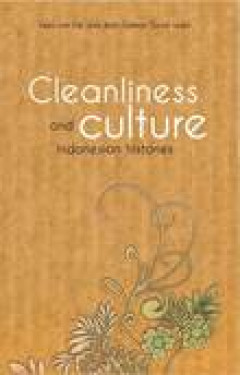
Cleanliness and culture:Indonesian histories
Recent years have shown an increase in interest in the study of cleanliness from a historical and sociological perspective. Many of such studies on bathing and washing, on keeping the body and the streets clean, and on filth and the combat of dirt, focus on Europe. In Cleanliness and culture attention shifts to the tropics, to Indonesia, in colonial times as well as in the present. Subjects ran…
- Edisi
- -
- ISBN/ISSN
- 9789067183758
- Deskripsi Fisik
- xii, 204 p.
- Judul Seri
- -
- No. Panggil
- 958.9 CLE c

Islam, humanity, and the Indonesian identity :reflections on history
"Islam exists in global history with its richly variegated cultural and social realities. When these specific cultural contexts are marginalized, Islam is reduced to an ahistorical religion without the ability to contribute to humanity. This limited understanding of Islam has been a contributing factor in many of the violent conflicts in the present day. Reflecting on Islam in Indonesia, the wo…
- Edisi
- -
- ISBN/ISSN
- 9789400603080
- Deskripsi Fisik
- 287p. : ill.
- Judul Seri
- -
- No. Panggil
- 959.8 MAA i

Islam, politics and change :the Indonesian experience after the fall of Suharto
After violent protests all over the country had forced President Suharto to step down in 1998, Indonesia successfully made the transition from an authoritarian state to a democracy. In this book Indonesian scholars attached to Islamic universities and Dutch researchers investigate what happened since and what the consequences are of the growing influence of orthodoxy and radicalism, which alrea…
- Edisi
- -
- ISBN/ISSN
- 9789087282387
- Deskripsi Fisik
- 333p. : ill.
- Judul Seri
- -
- No. Panggil
- 320.959804 ISL i

Adat and indigeneity in Indonesia - culture and entitlements between heterono…
A number of UN conventions and declarations (on the Rights of Indigenous Peoples, the Protection and Promotion of the Diversity of Cultural Expressions and the World Heritage Conventions) can be understood as instruments of international governance to promote democracy and social justice worldwide. In Indonesia (as in many other countries), these international agreements have encouraged the sel…
- Edisi
- -
- ISBN/ISSN
- 9783863951320
- Deskripsi Fisik
- 240 p.; 22 cm.
- Judul Seri
- -
- No. Panggil
- 301 ADA a

Contemporary Indonesian film; spirits of reform and ghosts from the past
This highly informative book explores the world of Post-Soeharto Indonesian audio-visual media in the exiting era of Reform. From a multidisciplinary approach it considers a wide variety of issues such as mainstream and alternative film practices, ceremonial and independent film festivals, film piracy, history and horror, documentary, television soaps, and Islamic films, as well as censorship f…
- Edisi
- -
- ISBN/ISSN
- 9789067183819
- Deskripsi Fisik
- 239 p.; 22 cm
- Judul Seri
- -
- No. Panggil
- 301 HEE e

The Struggle of the Shi‘is in Indonesia
The Struggle of the Shi‘is in Indonesia is a pioneering work. It is the first comprehensive scholarly examination in English of the development of Shiism in Indonesia. It focuses primarily on the important period between 1979 and 2004 – a period of nearly a quarter of a century that saw the notable dissemination of Shi’i ideas and a considerable expansion of the number of Shi’i adherent…
- Edisi
- -
- ISBN/ISSN
- 9781925021301
- Deskripsi Fisik
- XXIII, 304 p.
- Judul Seri
- -
- No. Panggil
- 297.8042 ZUL s

Islam and the making of the nation:Kartosuwiryo and political Islam in twenti…
For decades, scholars of Indonesia have rejected the religious claims of the Darul Islam movement, interpreting the antagonism between the Islamic state and Soekarno’s republic as a fight for power, self-assertion, or land rights. Recently Kartosuwiryo and the Darul Islam have become heroic symbols of the local Islamist struggle, offering an alternative vision of this politician. The author l…
- Edisi
- -
- ISBN/ISSN
- 9789067183864
- Deskripsi Fisik
- XVII, 244 p.
- Judul Seri
- -
- No. Panggil
- 959.803 FOR i

Vote buying in Indonesia :the mechanics of electoral bribery
This book investigates the impact of vote buying on the accountability of democratic institutions and policy representation in newly democratic countries, with a focus on Indonesia. In doing so, the book presents a wide-ranging study of the dynamics of vote buying in Indonesia’s young democracy, exploring the nature, extent, determinants, targeting and effectiveness of this practice. It addre…
- Edisi
- -
- ISBN/ISSN
- 9789811367793
- Deskripsi Fisik
- xiv, 318p. : ill.
- Judul Seri
- -
- No. Panggil
- 364.1324 MUH v
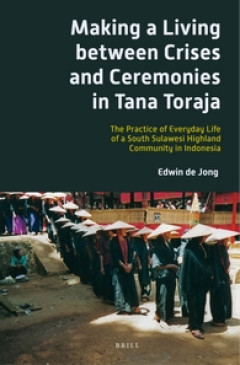
Making a living between crises and ceremonies in Tana Toraja :the practice of…
The practice of everyday life in Tana Toraja (South Sulawesi, Indonesia) is structured by a series of public events, of which funerals are the most important. Even after Indonesia was hit by an economic crisis in the late 1990s, thousands of extravagant funeral ceremonies, requiring huge expenditures, were still organized each year. To understand the paradoxes and complexities of Torajan liveli…
- Edisi
- -
- ISBN/ISSN
- 9789004252479
- Deskripsi Fisik
- XIV, 332 p.
- Judul Seri
- -
- No. Panggil
- 959.847 DEJ m

At the edges of states :dynamics of state formation in the Indonesian borderl…
Set in West Kalimantan, Indonesian Borneo, this study explores the shifting relationships between border communities and the state along the political border with East Malaysia. The book rests on the premises that remote border regions offer an exciting study arena that can tell us important things about how marginal citizens relate to their nation-state. The basic assumption is that central st…
- Edisi
- -
- ISBN/ISSN
- 9789067183741
- Deskripsi Fisik
- XVIII, 355 p.
- Judul Seri
- -
- No. Panggil
- 959.832 EIL e

The lands west of the lakes; A history of the Ajattappareng kingdoms of South…
The period 1200-1600 CE saw a radical transformation from simple chiefdoms to kingdoms (in archaeological terminology, complex chiefdoms) across lowland South Sulawesi, a region that lay outside the ‘classical’ Indicized parts of Southeast Asia. The rise of these kingdoms was stimulated and economically supported by trade in prestige goods with other parts of island Southeast Asia, yet the …
- Edisi
- -
- ISBN/ISSN
- 9789067183314
- Deskripsi Fisik
- xvi, 377 p.
- Judul Seri
- -
- No. Panggil
- 909 DRU l
Indonesia in a reforming world economy:effects on agriculture, trade and the …
In the mid-1990s a joint research project was established between CASER (Bogor), CIES (Adelaide), CSIS ( Jakarta) and RSPAS (at ANU, Canberra) to examine interactions between agriculture, trade and the environment in Indonesia. Funded by the Australian Centre for International Agricultural Research (ACIAR Project No. 9449), the specific objective of the project was to assess the production, con…
- Edisi
- -
- ISBN/ISSN
- 9780980623871
- Deskripsi Fisik
- xvi, 265p.: ill.
- Judul Seri
- -
- No. Panggil
- 338.109598 AND
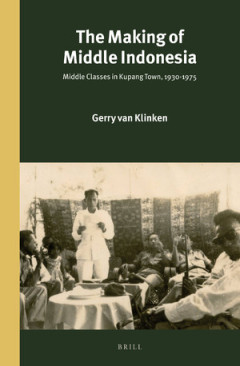
The making of middle Indonesia
What holds Indonesia together? In The Making of Middle Indonesia, Gerry van Klinken develops an innovative historical explanation that looks beyond national elites to middle classes in provincial towns.
- Edisi
- -
- ISBN/ISSN
- 9789004265424
- Deskripsi Fisik
- xvii, 300p.: ill.
- Judul Seri
- -
- No. Panggil
- 305.550959868 VAN t

Chairil Anwar:the poet and his language
- Edisi
- -
- ISBN/ISSN
- 9789004286931
- Deskripsi Fisik
- xxviii, 159p.
- Judul Seri
- -
- No. Panggil
- 899.2211 OEM c
- Edisi
- -
- ISBN/ISSN
- 9789004286931
- Deskripsi Fisik
- xxviii, 159p.
- Judul Seri
- -
- No. Panggil
- 899.2211 OEM c

Environmental dispute resolution in Indonesia
In the last two decades, Indonesia has seen a dramatic proliferation of environmental disputes in a variety of sectors, triggered by intensified deforestation and large scale mining operations in the resource rich outer islands, together with rapid industrialisation in the densely populated inner island of Java. Whilst the emergence of environmental disputes has sometimes attracted political re…
- Edisi
- -
- ISBN/ISSN
- 9789067183260
- Deskripsi Fisik
- xvii, 334p.
- Judul Seri
- -
- No. Panggil
- 344.598046 NIC e
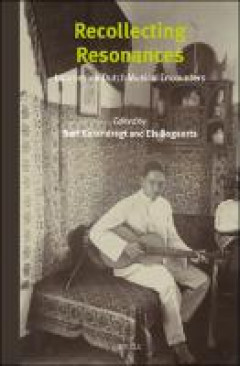
Recollecting resonance:Indonesian-Dutch musical encounters
Over time Dutch and Indonesian musicians have inspired each other and they continue to do so. Recollecting Resonances offers a way of studying these musical encounters and a mutual heritage one today still can listen to. Readership: All those willing to learn more about the impact and consequences of musical encounters between Dutch and Indonesian performers in both a colonial and postcolonial …
- Edisi
- -
- ISBN/ISSN
- 9789004258594
- Deskripsi Fisik
- xi, 353p.: ill.
- Judul Seri
- -
- No. Panggil
- 780.959809492 REC c
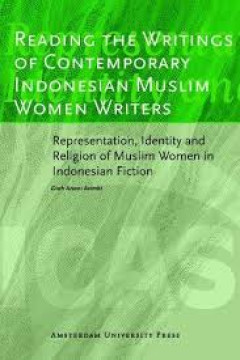
Reading contemporary Indonesian Muslim women writers representation, identit…
- Edisi
- -
- ISBN/ISSN
- 9789089640895
- Deskripsi Fisik
- -
- Judul Seri
- -
- No. Panggil
- 899.22300809287 ARi r
- Edisi
- -
- ISBN/ISSN
- 9789089640895
- Deskripsi Fisik
- -
- Judul Seri
- -
- No. Panggil
- 899.22300809287 ARi r
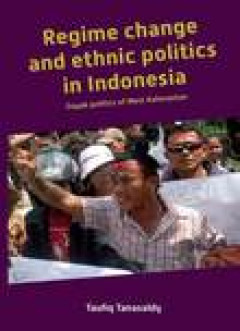
Regime change and ethnic politics in Indonesia; Dayak politics of West Kalima…
When the Indonesian New Order regime fell in 1998, regional politics with strong ethnic content emerged across the country. In West Kalimantan the predominant feature was particularly that of the Dayaks. This surge, however, was not unprecedented. After centuries of occupying a subordinate place in the political and social hierarchy under the nominal rule of the Malay sultanates, Dayaks became …
- Edisi
- -
- ISBN/ISSN
- -
- Deskripsi Fisik
- xiv, 461 p.; 22 cm.
- Judul Seri
- -
- No. Panggil
- 959.8 TAN r
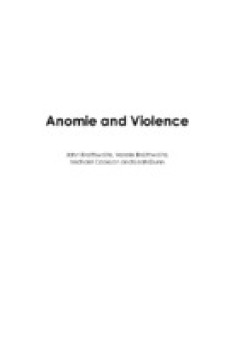
Anomie and violence :non-truth and reconciliation in Indonesian peacebuilding
Indonesia suffered an explosion of religious violence, ethnic violence, separatist violence, terrorism, and violence by criminal gangs, the security forces and militias in the late 1990s and early 2000s. By 2002 Indonesia had the worst terrorism problem of any nation. All these forms of violence have now fallen dramatically. How was this accomplished? What drove the rise and the fall of violenc…
- Edisi
- -
- ISBN/ISSN
- 9781921666230
- Deskripsi Fisik
- XV, 501 p.
- Judul Seri
- -
- No. Panggil
- 320.9598 ANO a
 Karya Umum
Karya Umum  Filsafat
Filsafat  Agama
Agama  Ilmu-ilmu Sosial
Ilmu-ilmu Sosial  Bahasa
Bahasa  Ilmu-ilmu Murni
Ilmu-ilmu Murni  Ilmu-ilmu Terapan
Ilmu-ilmu Terapan  Kesenian, Hiburan, dan Olahraga
Kesenian, Hiburan, dan Olahraga  Kesusastraan
Kesusastraan  Geografi dan Sejarah
Geografi dan Sejarah